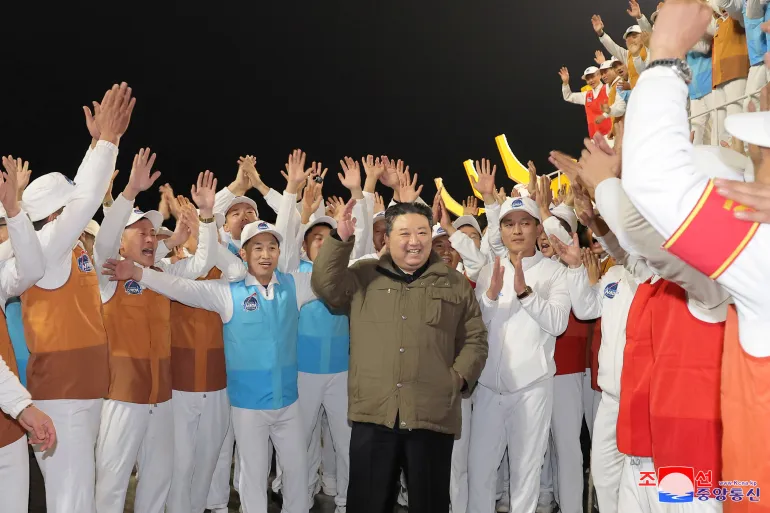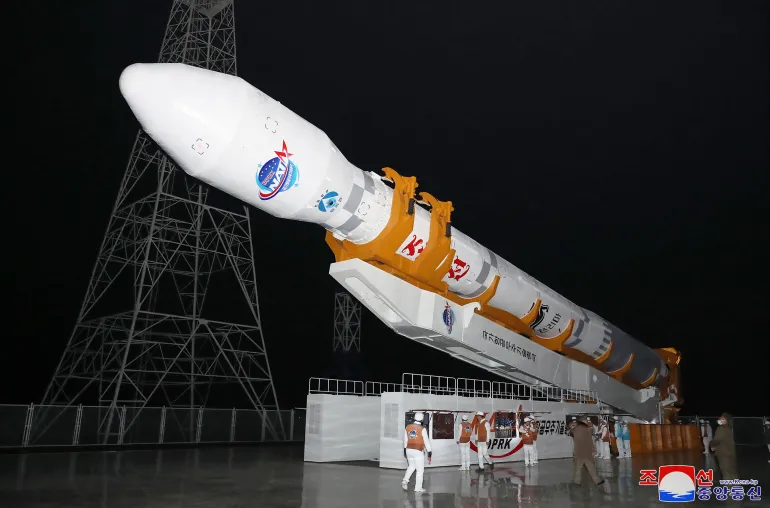North Korea and the Malligyong-1 Spy Satellite launch: what we know about it
22nd Nov 2023
North Korea has announced the successful launch of a reconnaissance satellite. At 10.42 pm (13:42 GMT) on Tuesday, 21st November, Malligyong-1was launched on the new Chollima-1 rocket, the state-run Korean Central News Agency (KCNA) reported. The launch occurred shortly after Pyongyang informed Japan of its plan to launch a satellite between 22 November and 1 December.
However, South Korea, the United States, and Japan, all facing escalating military tensions with North Korea, were unable to independently verify whether the satellite successfully entered orbit.
Third attempt at a North Korean satellite launch
In late May, Pyongyang’s first satellite launch failed due to a malfunction in the second stage of the rocket, causing it to crash into the sea. The issue was linked to the “low” reliability and stability of the new engine system and the use of “unstable” fuel.
In August, a second launch encountered problems with the emergency blasting system during the third stage, resulting in the rocket breaking into multiple parts and falling into the Yellow Sea, East China Sea, and Pacific Ocean.
Tuesday night’s attempt was widely anticipated and was announced by Pyongyang. Simultaneously, North Korea declared its intention to conduct additional launches as a defensive measure against perceived threats from “dangerous military manoeuvres” by its adversaries.

The target of theMalligyong-1 launch
The satellite, according to North Korea, is deemed essential for addressing perceived threats from South Korea and the United States and will enhance its capability to monitor its neighbouring countries. State media reported on Wednesday that Kim had already examined images of US military bases in Guam transmitted from the Malligyong-1 satellite.
Other countries’ reactions
South Korea labelled the launch as a “definite breach” of a UN Security Council resolution that prohibits North Korea from utilizing ballistic missile technology. Subsequently, on the morning of the 22nd, the South Korean government took the step of partially suspending a pre-existing agreement with North Korea. This agreement imposed restrictions on the South’s reconnaissance and surveillance activities along the demilitarized zone (DMZ), which serves as a buffer between the two nations.
China, the primary ally of North Korea, expressed the view that it is in the collective interest of all parties to safeguard peace and stability on the Korean peninsula.
The rocket carrying the satellite was launched southward, passing over Japan’s Okinawa prefecture. Japanese Prime Minister Fumio Kishida condemned the launch, emphasizing its serious implications for the safety of Japanese citizens. He reiterated the Japanese commitment to respond in sync with the US and South Korea to Pyongyang’s launches.
Vann Van Diepen, a former US government weapons expert at the Stimson Center in Washington, suggested that such a satellite may not provide detailed intelligence on specific weapons systems. However, it could still be valuable for identifying large troop movements. To launch a more advanced satellite, North Korea would likely need to develop a larger rocket, which seems to be in progress.
The participation of Russia
On 19th November, South Korea’s Defense Minister Shin Won-sik suggested that North Korea had received assistance from Russia in addressing rocket engine challenges. This followed Kim Jong Un’s September visit to Russia, where Putin expressed willingness to support North Korea’s space initiatives. In response, Seoul and Washington accused North Korea of transporting weapons to Russia. Despite these claims, many experts cast doubt on the notion that Moscow could have offered transformative assistance in just two months.
Chang Young-Keun, a professor at Korea Aerospace University, doubted North Korea’s ability to rebuild a satellite quickly with Russian assistance. However, he acknowledged that Russia might have provided valuable insights by analyzing previous failures and sharing telemetry data.






Thank you for your comment! It will be visible on the site after moderation.